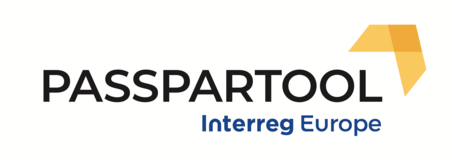

Results and perspectives on soft innovation in PASSPARTOOL final event in Brussels
Results but also perspectives on the future of soft innovation and tools to steer it in the right direction. This and much more emerged during the final event of PASSPARTOOL - Key tools to assess and improve soft innovation policies, held last May 10th at Puglia Region delegation offices in Brussels.
PASSPARTOOL, the Interreg Europe project, active since 2019 led by ARTI, has explored the aspects of soft innovation, i.e. the innovation that involves SMEs, the world of culture and creativity (not strictly linked to research), both from a conceptual and political point of view, looking at public tools to promote and monitor it. The inability to understand these dynamics, in fact, implies that a significant part of the innovative (or potentially innovative) activities go unnoticed and, therefore, do not receive adequate support.
The project, which reviewed the (limited) academic literature and explored active policies in partner countries, highlighted that soft innovation and R&D innovation are complementary and, therefore, require complementarity in organisational, social and consumption to generate effects.
The project final conference, organized by ARTI in collaboration with the other project partners from Spain, Netherlands, Ireland, Poland, Finland, was the final moment of three years of fruitful cross-border exchange, an opportunity to learn about the main results of PASSPARTOOL implemented in the different territories and to participate in an open dialogue between policy makers, experts and public authorities.
During the event, introduced by ARTI President Vito Albino, the need to outline increasingly specific and targeted policies and interventions was underlined several times to allow the development of soft innovation, as a fundamental lever for the economic development of a territory. Limits, opportunities, experiences and new perspectives for monitoring and evaluating innovation policies, but also the specific innovation needs of SMEs and the local impact of the sustainable development objectives envisaged by the Agenda 2030 were discussed during the event.
Furthermore, the S3 Community of Practices (S3 CoP), the European Commission initiative that involves experts and stakeholders dealing with smart specialization strategies, was presented with the aim of supporting DG Regio in implementing strategies and actions in support of the regions, in order to help them to identify the priority areas on which to intervene in terms of support for research and innovation.
The PASSPARTOOL results, specifically the local action plans created by the project partners, were the focus of the round table, from which it emerged that technology is not always sufficient for the economic development of a territory and that an healthy ecosystem is needed, made up of relationships between stakeholders, of communities that become reactive observers able to combine and catalyze good innovation practices.
The event made it possible to show the necessary steps to improve the monitoring capacity and to develop even more efficient policies in support of soft innovation processes, with particular attention to the involvement of the beneficiaries of the policies themselves in the process of their elaboration, as highlighted by Silvia Visciano, Director of the Research and International Relations section of the Puglia Region.
Find the presentations:
Introduction to the project, Jennifer Grisorio, project manager PASSPARTOOL
Interreg Europe – State of Play, Vincenzo Capocasale, Interreg Europe Programme
Localising the SDGs: findings from the urban and regional territorial levels in Europe, Iraklis Stamos, Policy Officer, European Commission
Monitoring and evaluation of Lithuanian smart specialization - experiences and plans for the future, Paulius Kamaitis, Innovation Expert - Ministry of Economy and Innovation (Lithuania)